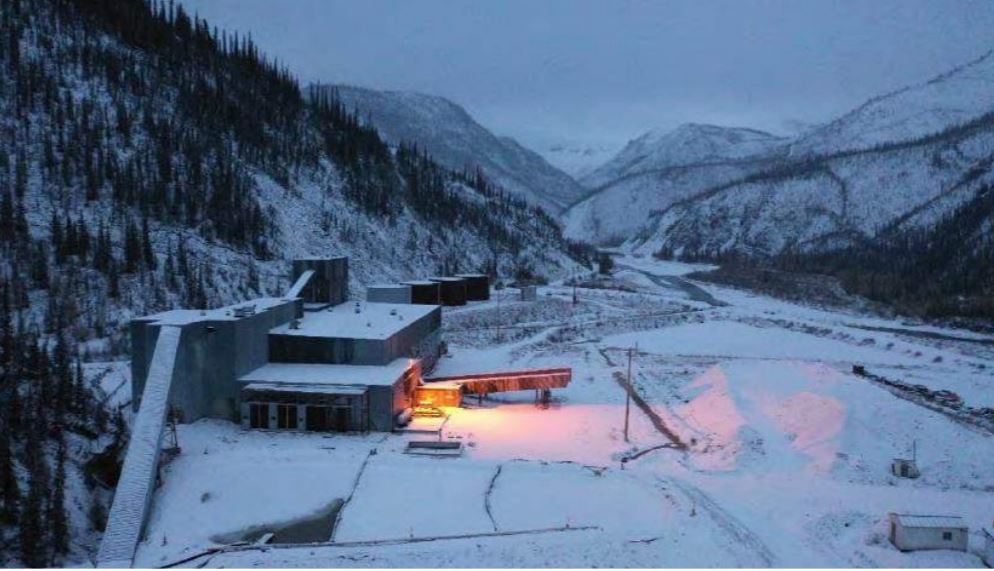NorZinc drilling at Prairie Creek hits high grade silver, zinc

A lower grade, 1.1 metre intersection from 506.8 meters returned 2.56 grams silver, 5.58% zinc plus lead and copper (19.64% zinc equivalent).
The longest intercept in hole 225 was 61.2 metres from 549.9 to 611.1 metres. This section averaged 0.85 grams silver, 3.79% zinc, 2.47% lead, and 0.06% copper (8.02% zinc equivalent). Base metal grades increased in the deeper parts of the hole. At 547.0 metres a zinc equivalent of 45.48% was calculated over 5.5 metres; at 594.8 metres it was 42.45% over 1.0 metres; and at 604.1 metres it was 42.81% over 1.9 metres.
Hole PC-20-225 was the first one drilled at the former Prairie Creek mine since 2015. It targeted the Main Quartz vein, outside but adjacent to the existing mine plan. Two stockwork zones, also outside existing resource estimates, were also intercepted. Further drilling is planned for 2021.
Development began at Prairie Creek, 200 km west of Fort Simpson, Yukon, in the 1970s and continued into 1982. By that time the surface facilities were 90%-95% complete and underground works to support a mining rate of 500 tonnes per day were established. The property never did advance to commercial production
NorZinc optioned the property in 1991, and two years later acquired a 100% interest in the deposit and a 60% interest in the surface facilities and equipment. Then in 2004, the company secured the remaining interest, including a 2% net smelter royalty.
A positive feasibility study was filed in 2017 with a proven and probable reserve of 8.1 million tonnes grading 8.1% lead, 8.64% zinc and 124.22 grams silver per tonne (23.1% zinc equivalent). The measured and indicated resource was 8.7 million tonnes with a zinc equivalent of 25.6% plus an inferred resource of 7.0 million tonnes at 27.1%.
(This article first appeared in The Northern Miner)




